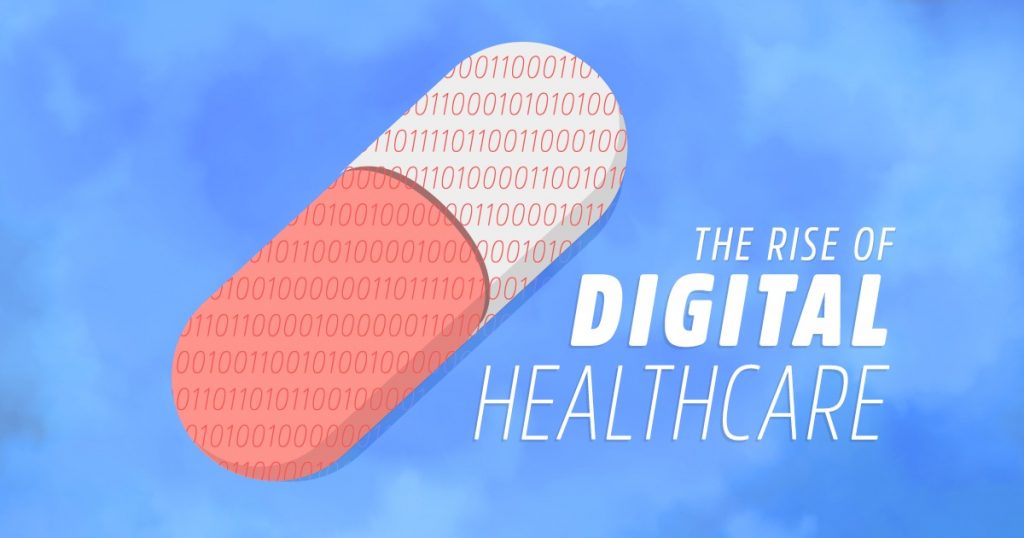
Digital healthcare, or the use of digital health tools such as telemedicine, wearables and online provider reviews, has become increasingly more popular over time. From 80% in 2015 to 87% in 2017, those embracing at least one digital health tool has increased, along with consumer satisfaction as reported in Rock Health digital health consumer adoption survey. Digital healthcare is increasing efficiency in tracking, managing and improving personal health without having to visit a doctor’s office as frequently.
Digital healthcare allows for patients to meet with their doctor through email, video, phone and other digital resources, making it easier to maintain their health and productivity. Those who have embraced digital health tools have been able to monitor their health and keep doctor’s informed with real-time data and the latest updates, while decreasing the amount of office visits and curbing long-term healthcare costs. As a result of digital healthcare, patients will also be able to research reviews, including provider quality and prices to find the best fit for them and their wallet.
According to the Rock Health digital health consumer adoption survey, the adoption of digital health tools has been on the rise since 2015. Young adults with a higher income are among the highest users of digital health compared to other consumers. While aging adults are the second highest consumer of digital health tools, we find that young adults outrank them by over 20 percent. Those with a greater demand of health services, such as aging seniors who require more frequent medical attention, are less likely to take advantage of digital healthcare. They prefer to receive more frequent in-office doctor visits. Confidence in sharing personal health details is higher when sharing with a physician than sharing with a tech company. Some patients feel uncomfortable with digital healthcare since their health details are being recorded and stored in a digital tool and not directly with their physician. However, when using a digital health tool, users are able to decide who receives their information.
Digital healthcare is allowing us to improve the way we manage our personal health and healthcare.
Article courtesy of Rachel Escolopio, AdvancedMD Marketing Specialist

